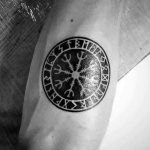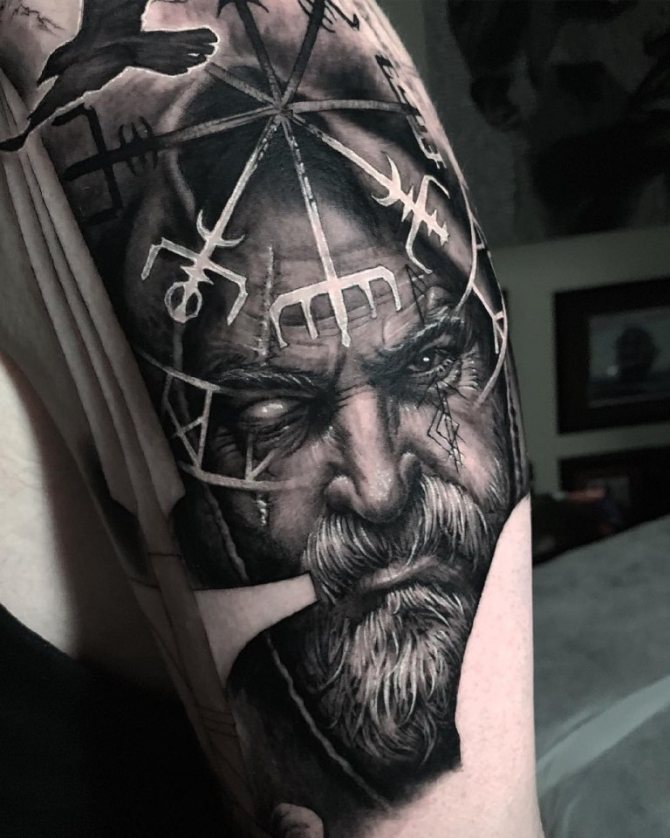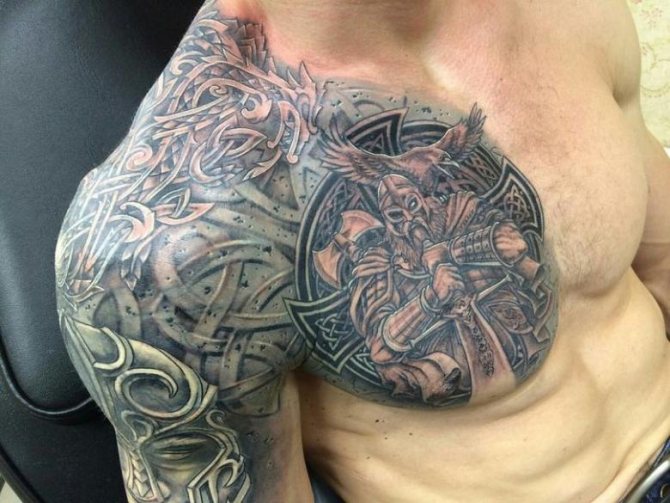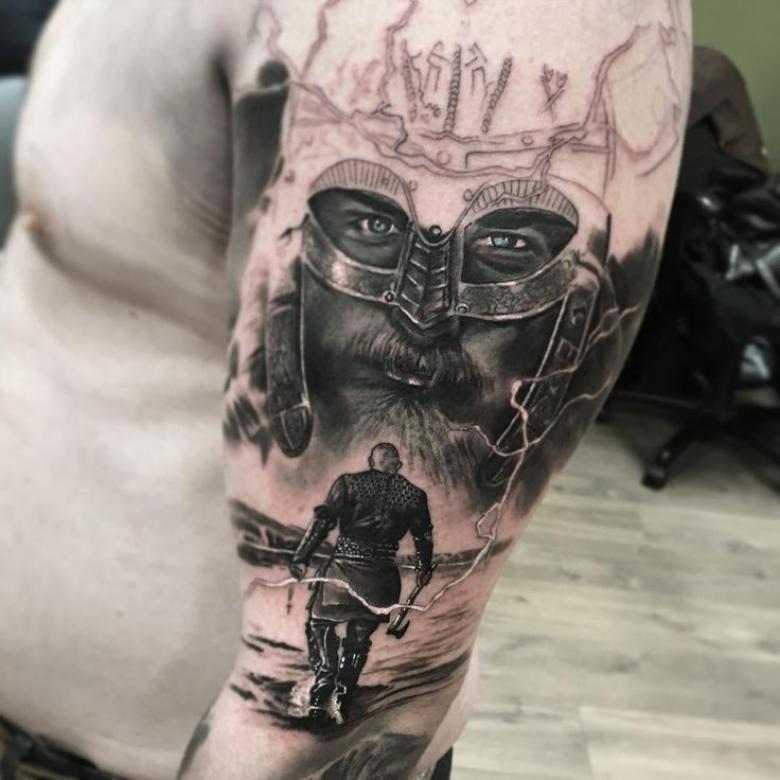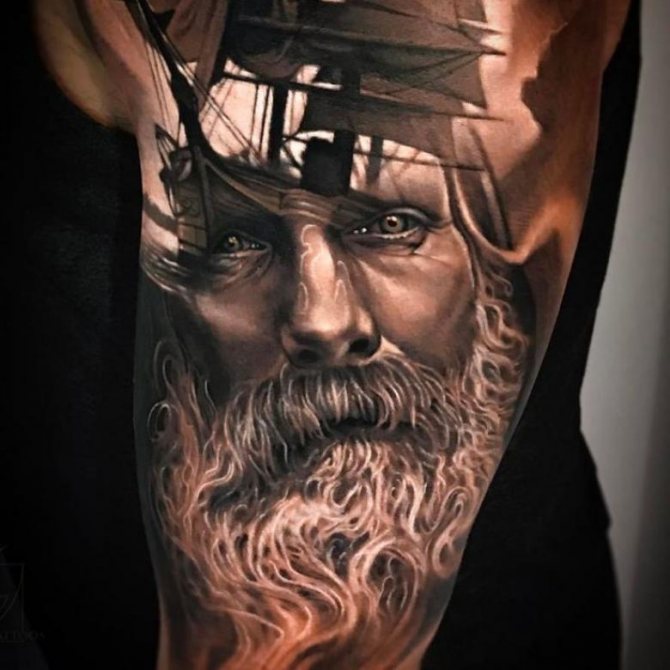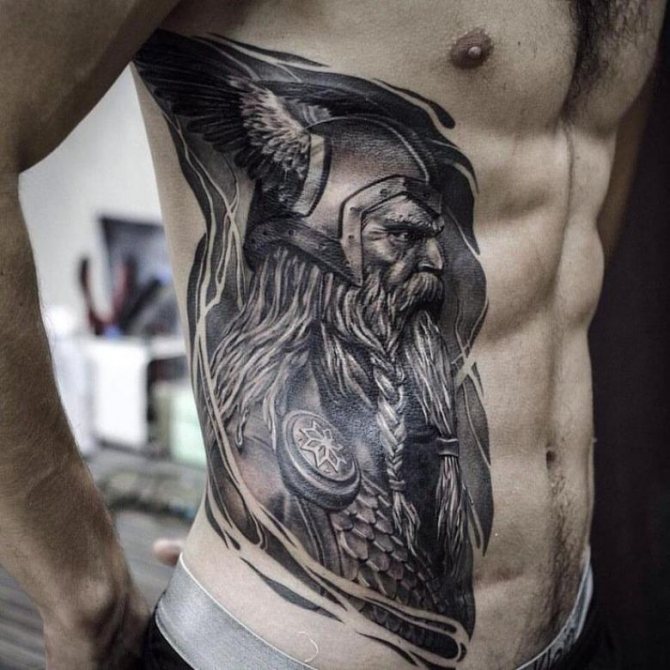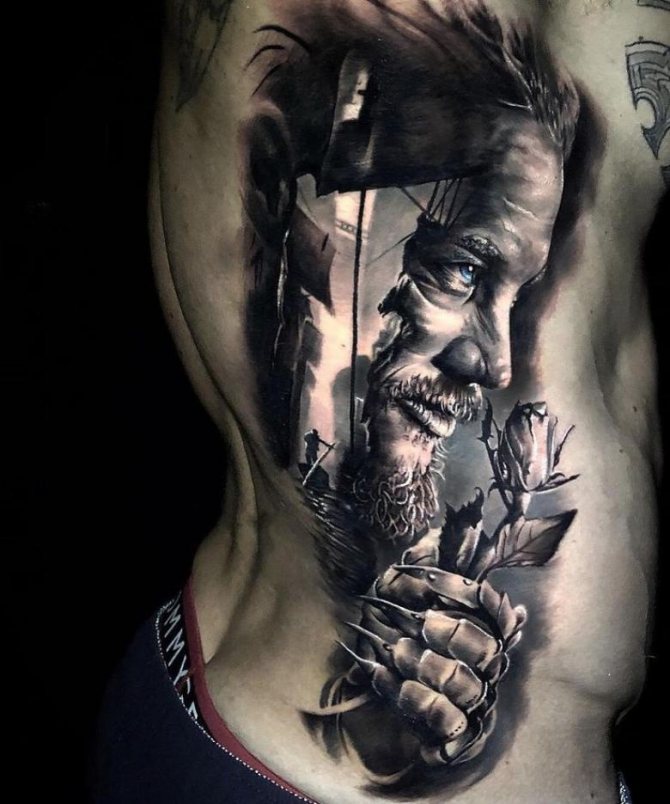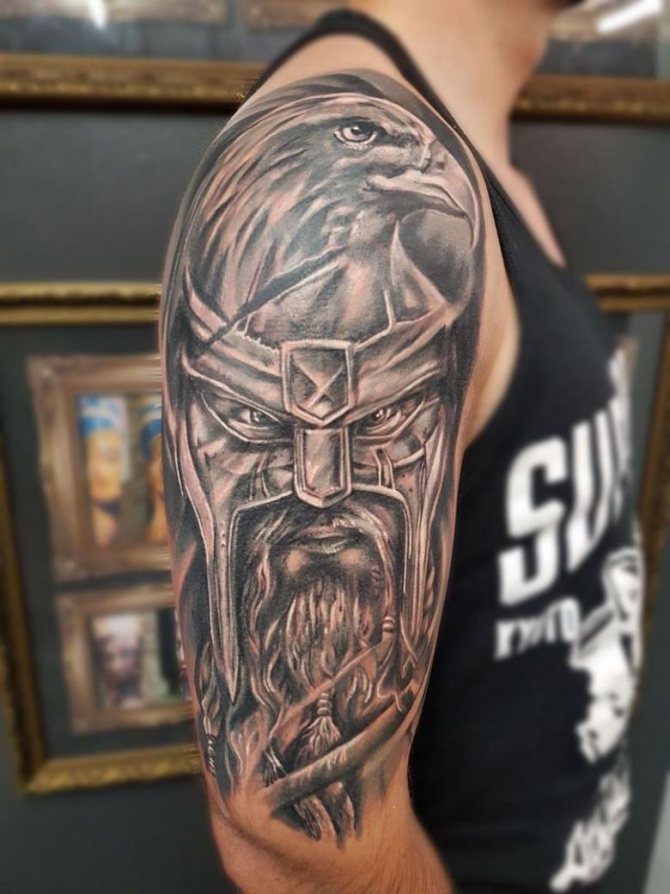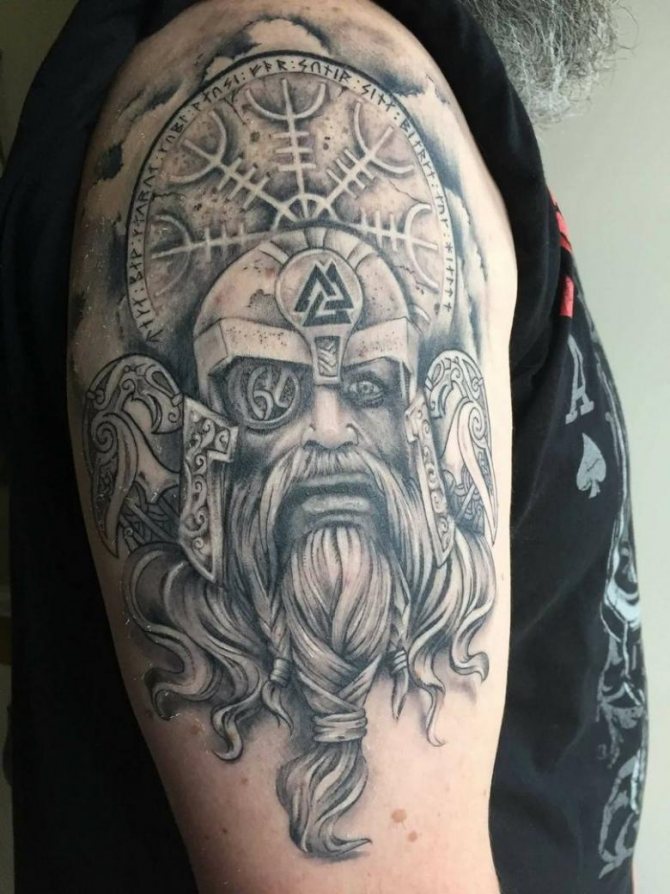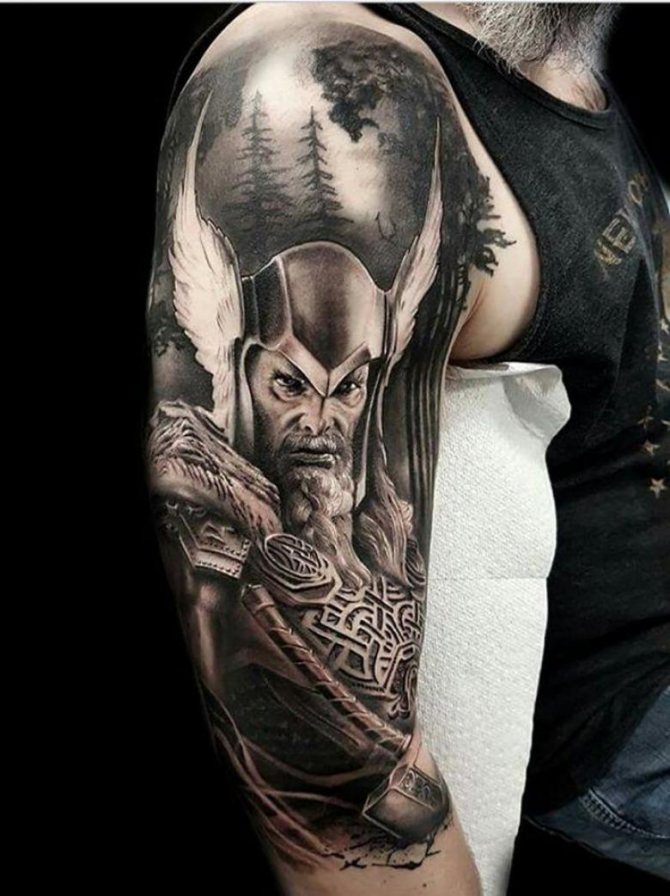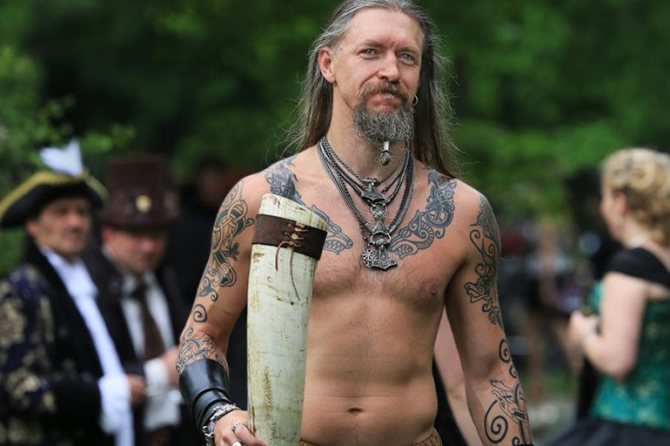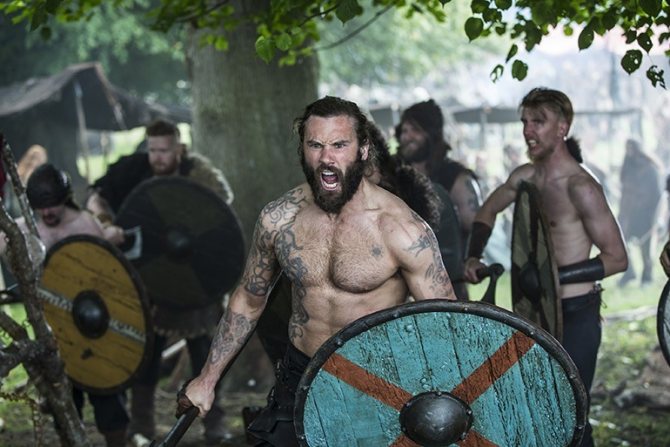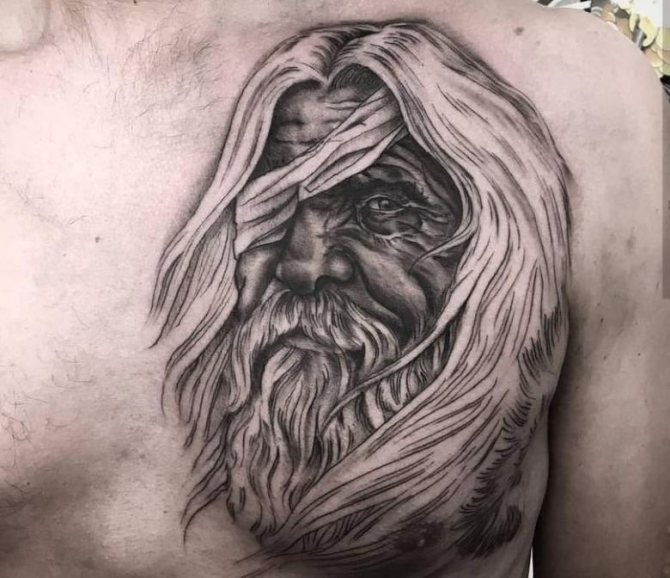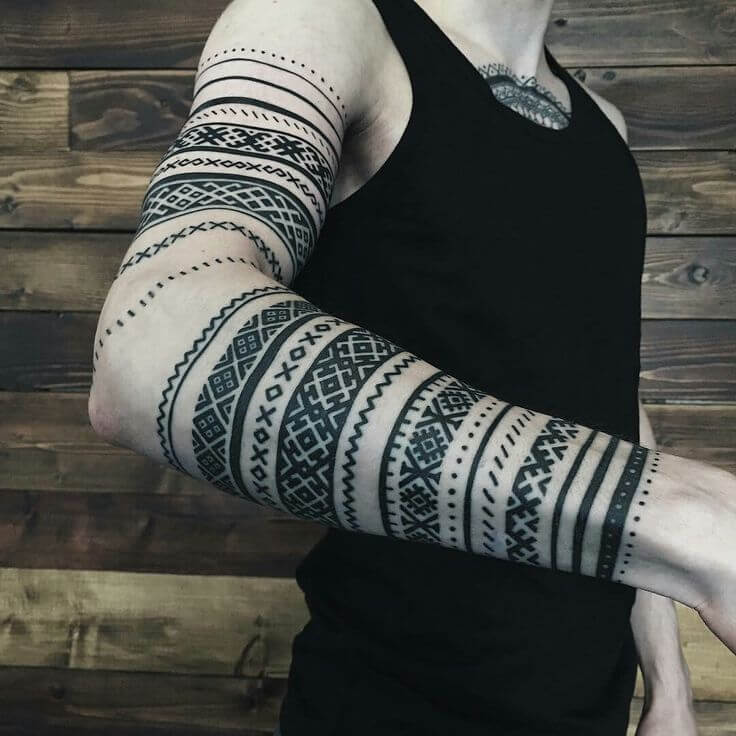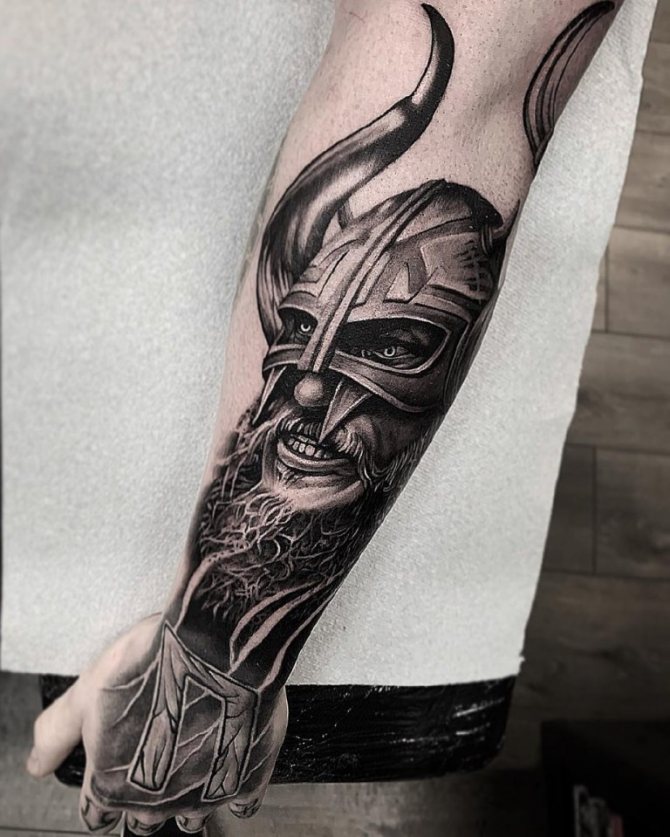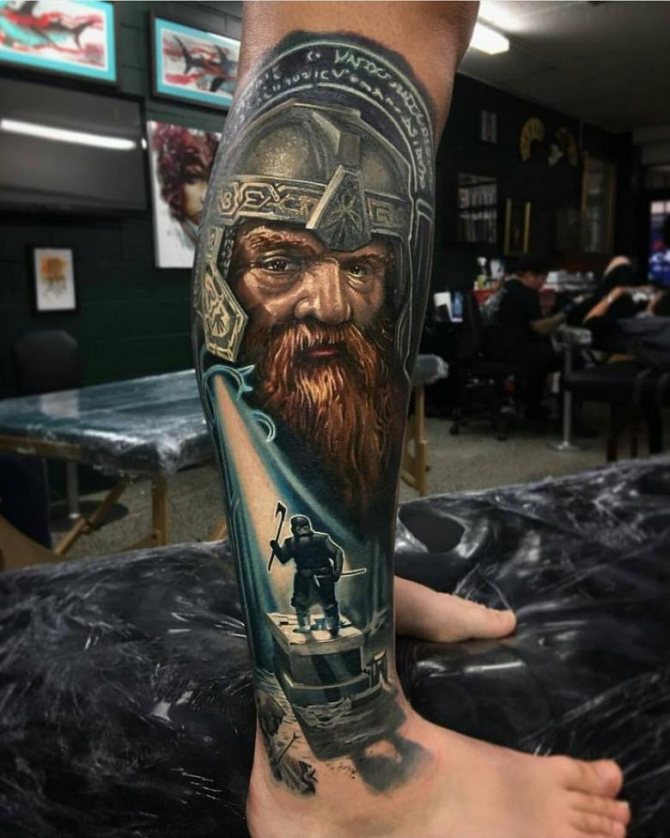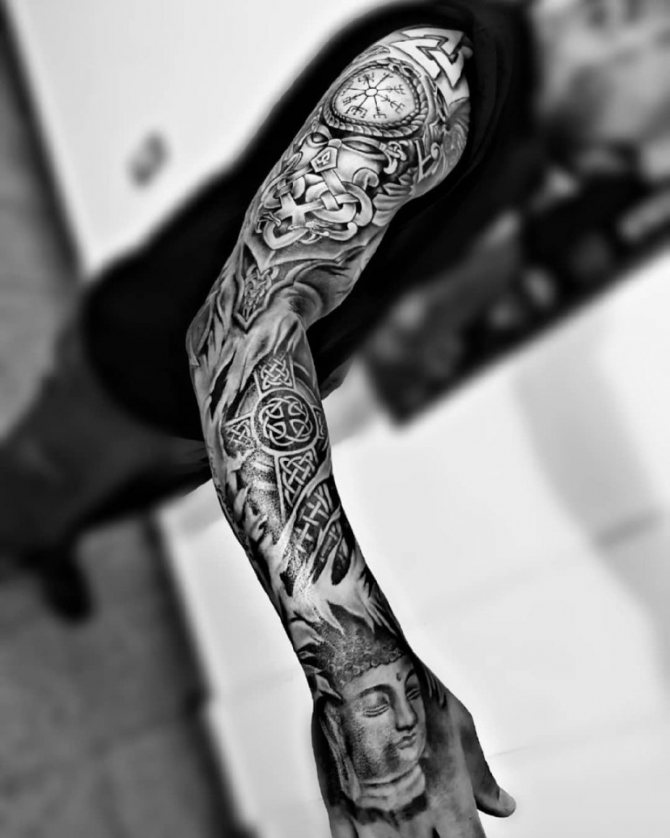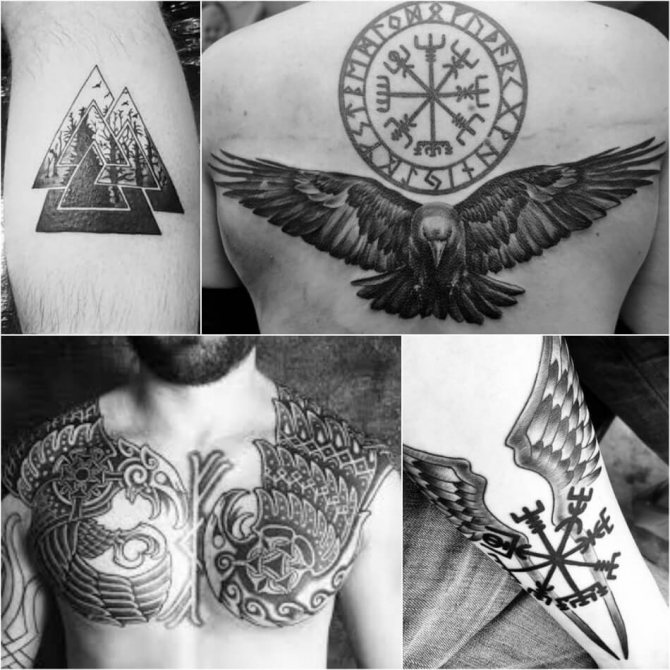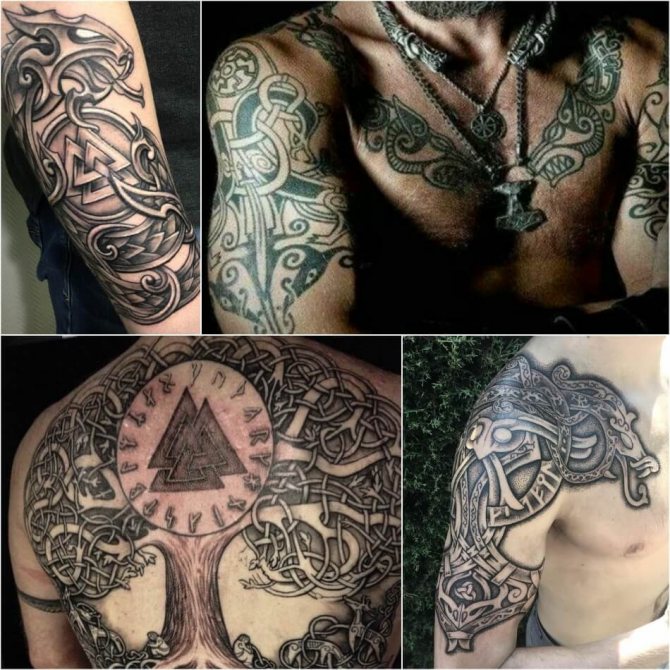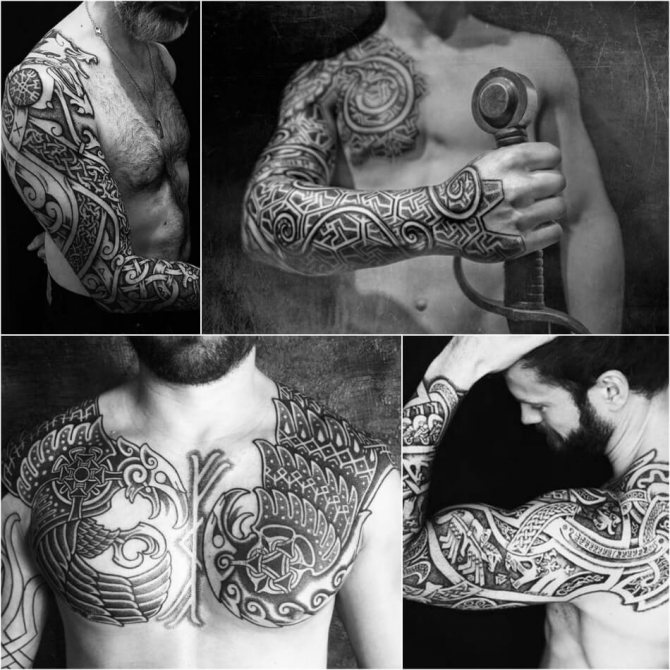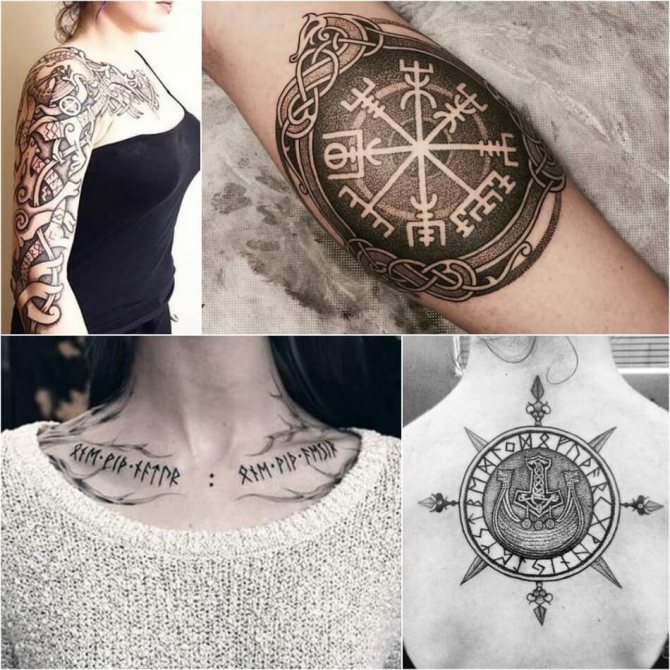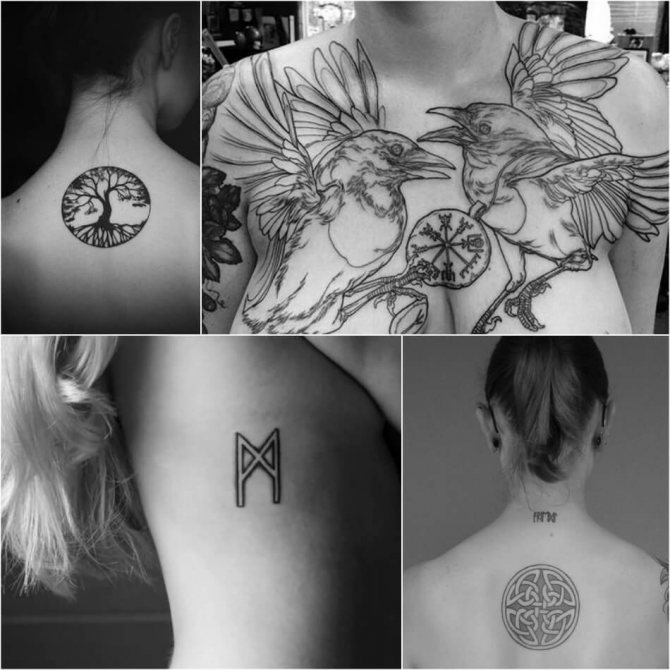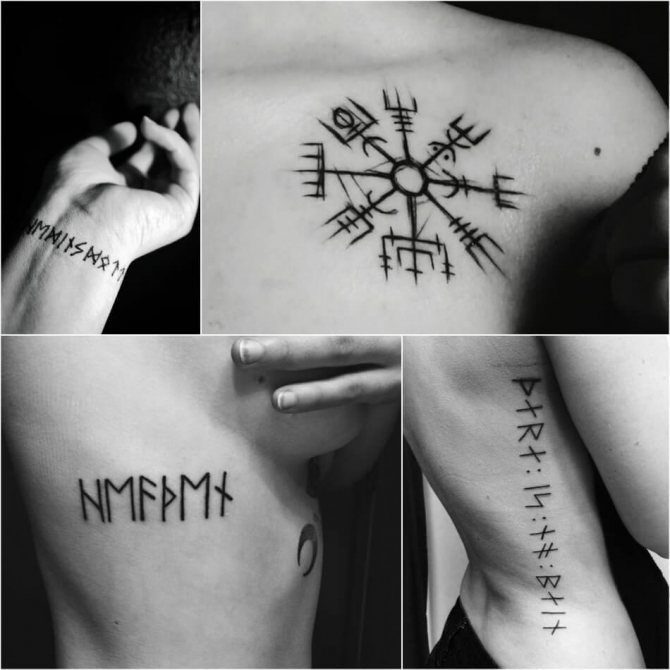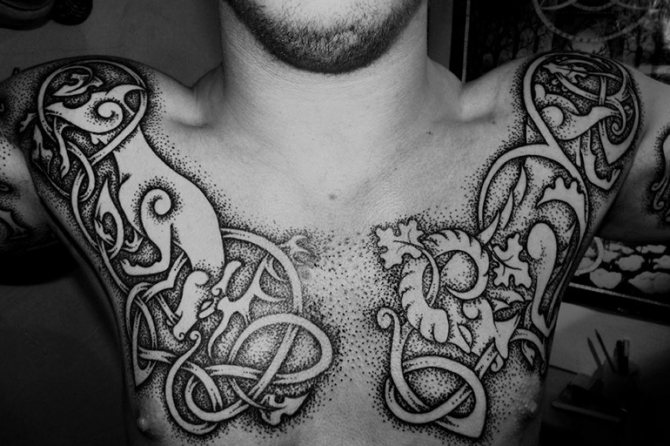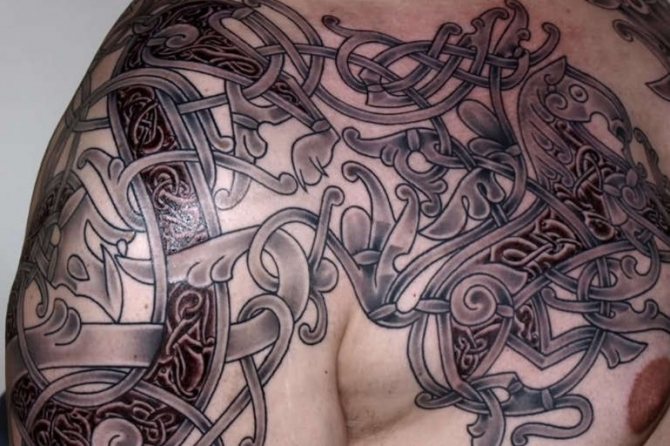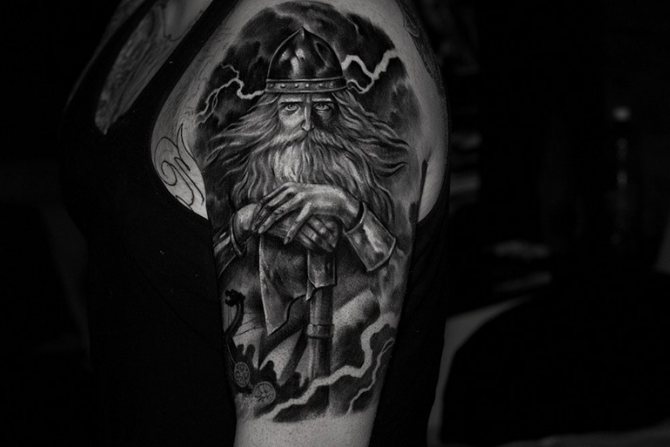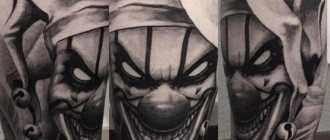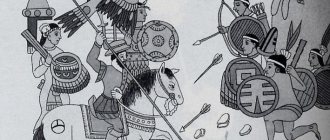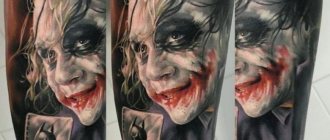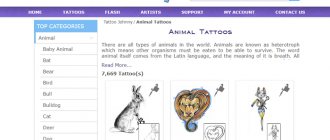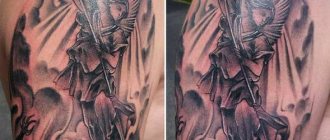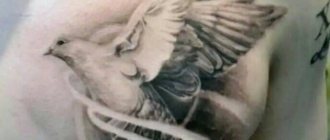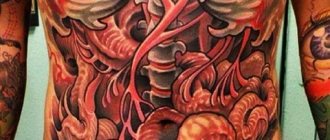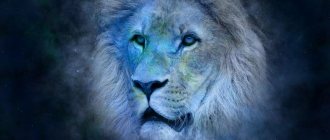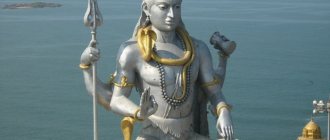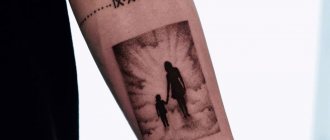Scandinavian Tattoos include a large number of variations, ranging from runic writing to depictions of gods. Tattoos of the Nordic tradition have a rich history with magical influences. There are tattoos that are as close to authentic Viking tattoos as possible, while there are patterns that are done in modern techniques, although they refer to Scandinavian myths. In our article we will take a detailed look at the most different branches of Scandinavian tattoos and varieties of Nordic tattoos.
Scandinavian Tattoos and Their Meanings
Tattoo Runes
- Runes
- the system of signs and writing of the peoples who inhabited the territory of Scandinavia. The Runic alphabet is called Futhark. The runes were used both as writing and as a system of magical signs. According to legend the God Odin sacrificed himself to get the runes. - To the tattoos with the runes can also include Galdrastava tattoos -
a more complex system of signs. The most popular galdrastaves are "helmets of terror", which the Vikings used as a weapon against their enemies, suppressing their will and instilling fear. Such drawings could be seen on armor, amulets, and weapons.
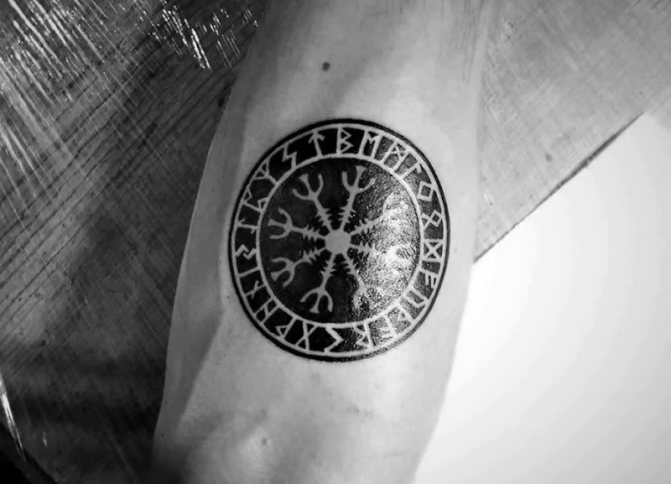
- Tattoo runes include a subspecies of runic ligatures.
. The ligature, in contrast to the runes and galldrastav is not an independent sign, but a combination of several runes. In different combinations runes can acquire new meanings and serve for the benefit of their owner.
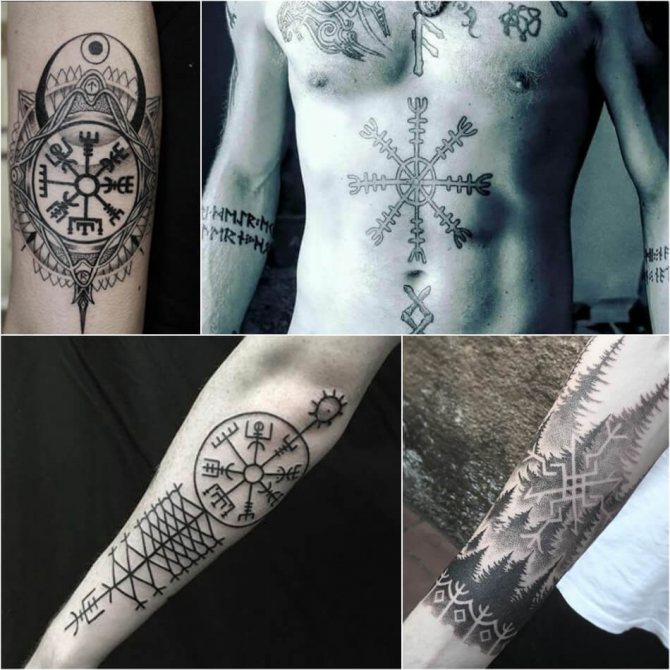

Tattoo World Tree
The world tree in the view of the Vikings - a huge ash tree, which they called Yggdrasil. According to legends, the tree connects all worlds and is a peculiar device of the universe. At the top of the ash tree is a wise eagle, in the roots is a dragon, at the branches are deer, and on the trunk runs a squirrel. In the roots is hidden source of wisdom and the source of all rivers.
The tattoo with the world tree means
That its owner studies the structure of the universe, that he accepts and is interested in myths and Nordic tradition. The tree is a symbol of knowledge, wisdom and the way.
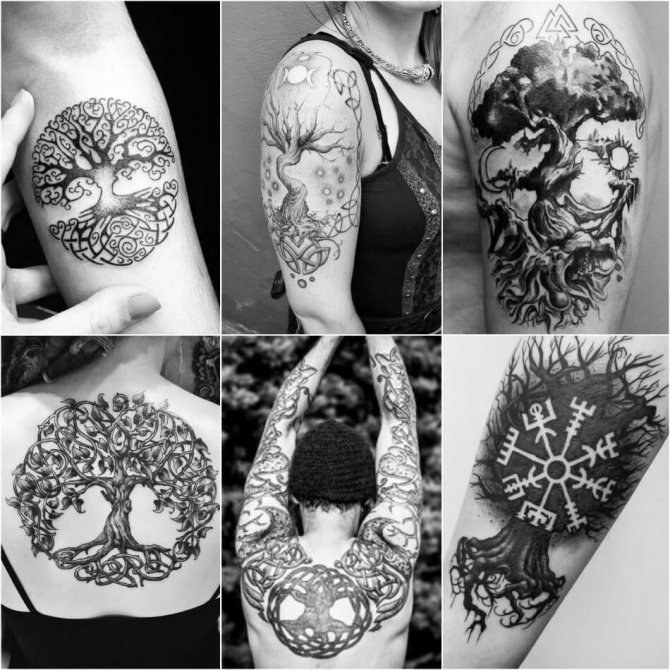

Tattoo of Odin
God Odin is the supreme god of the Vikings, wise and cunning, creator and omniscient. Odin was a shaman, warrior and sorcerer. Odin is depicted without an eye, which he gave up in exchange for wisdom. His eternal companions are the crows Hugin and Munin (Thought and Memory), the wolves Geri and Freki and the eight-legged horse Sleipnir. The weapon of the god Odin is the victorious spear Gungnir, which knows no miss.
A tattoo of the supreme Viking god
is suitable for people who seek the patronage of Odin. The tattoo will be harmoniously suited to a man who is bold, a leader, ready to take risks, and wise. The tattoo will be harmoniously suited to a person who is brave, a leader, ready to take risks, strong in character, and wise.
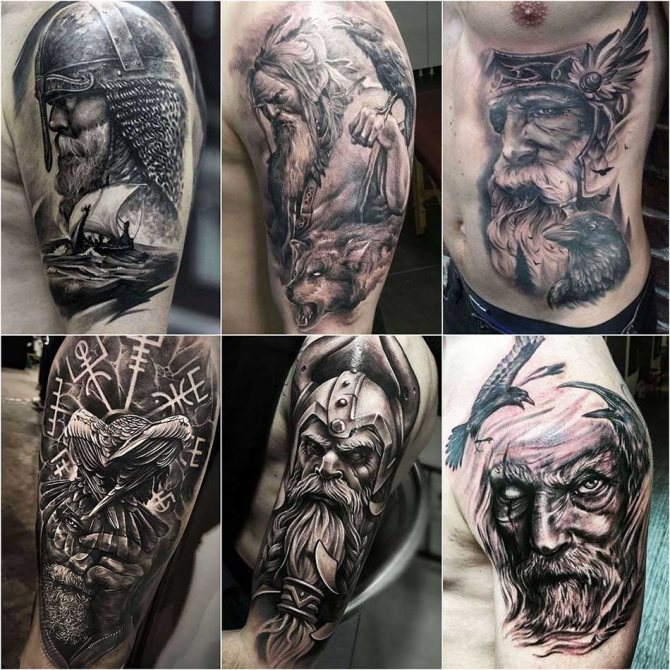

Tattoo of Ravens Hugin and Munin
Odin's crows are very often the subject for tattoos. Ravens
- are a metaphor, thought and memory that fly around the world and help to know it. Such a tattoo would mean that one is inclined to think, to search for truth, to know the universe.
Hugin and Munin.
Over the world all the time
flying over the world all the time;
I'm afraid for Hugin,
I'm more afraid for Munin.
whether the crows will come back!
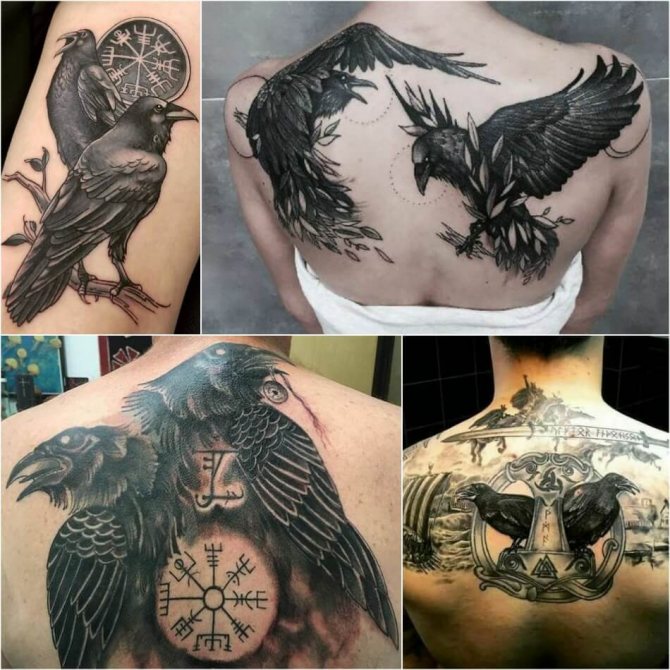

Tattoo of the Valkyries
The Valkyries are winged maiden warriors in Norse mythology. It was a great honor for the Vikings to die on the battlefield, in battle. It was the Valkyries who carried the dead warriors to Odin's chambers, to Valhalla.
The Valkyrie tattoo
symbolizes the courage of a warrior, a willingness to fight to the finish, to take his defeat with honor.
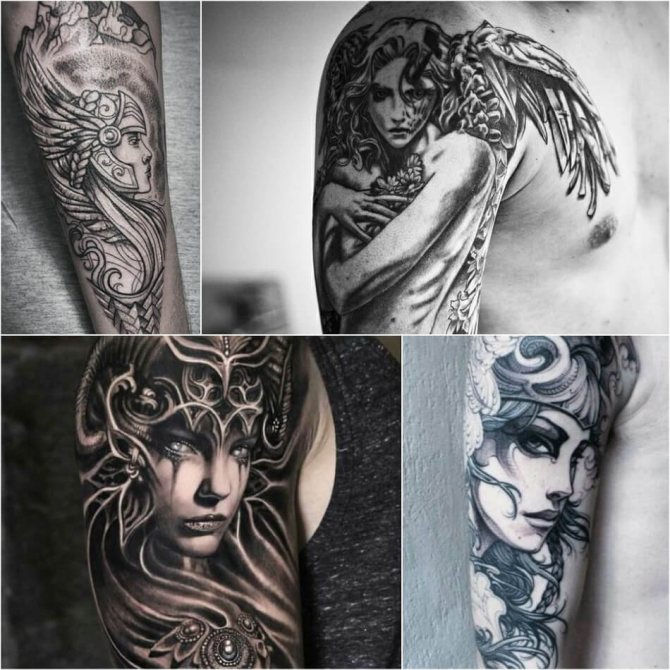

Tattoo Ornaments
Scandinavian ornaments
used to decorate armor and weapons. Vikings, by the way, were fans of tattoos. It was the ornaments and ligatures that became some of the first body adornments of the warlike people. The ornaments and knots similar to the Celtic had sacred and magical meaning. Such tattoos could protect their owners in battle, bring them wealth or the mercy of the gods.
In today's world, tattoos with ornaments can be aesthetic and can also be a talisman or amulet.
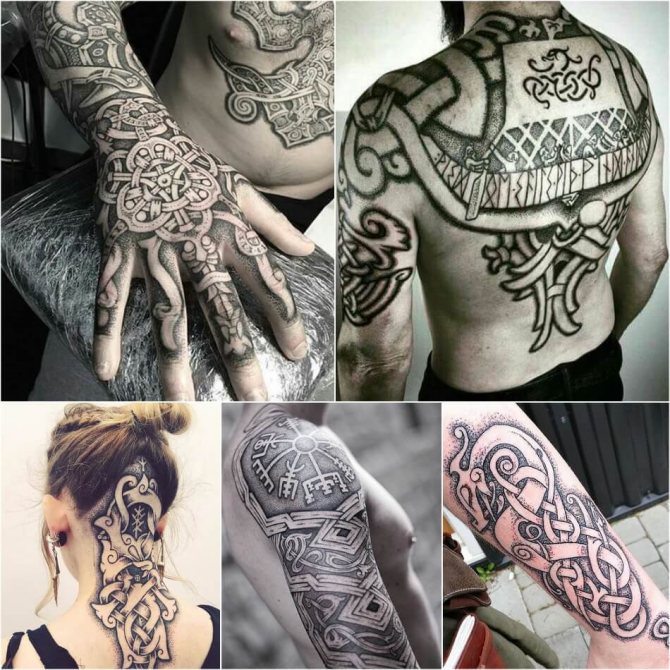

Tattoo ship Viking
As we know northern peoples were outstanding seafarers. They built ships on which they were able to sail to the Mediterranean Sea. According to one version, even the Vikings discovered America, even before the Columbus expedition.
The ship symbolizes
conquest, search, thirst for novelty and conquest, discoveries and new lands. the ship was manually steered by the crew, which in the modern world may bear a metaphorical character. That is, the man himself is the captain of his destiny, but without the help of family and friends, it is difficult to achieve many goals.
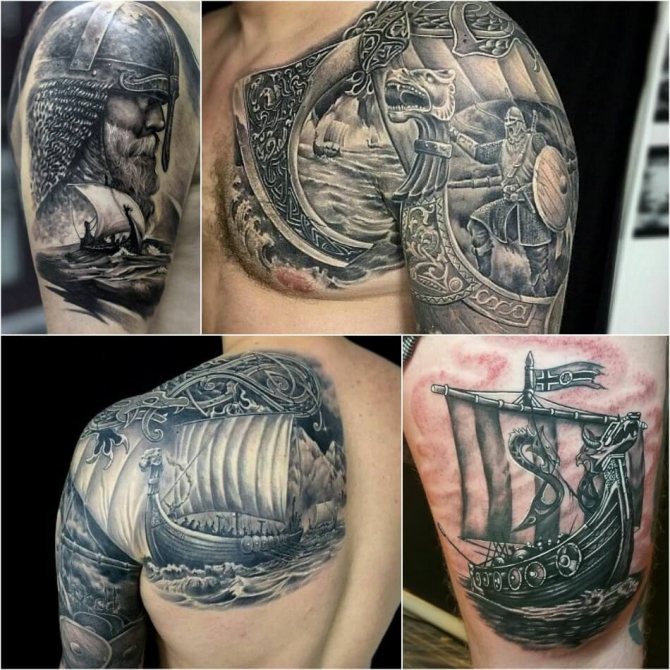

Tattoo Runic Compass
Vegvisir or runic compass
- is an ancient symbol of the Vikings. As we know the Vikings were good navigators. They believed that the runic compass tattoo helped them not to go astray and guaranteed help and patronage of the gods.
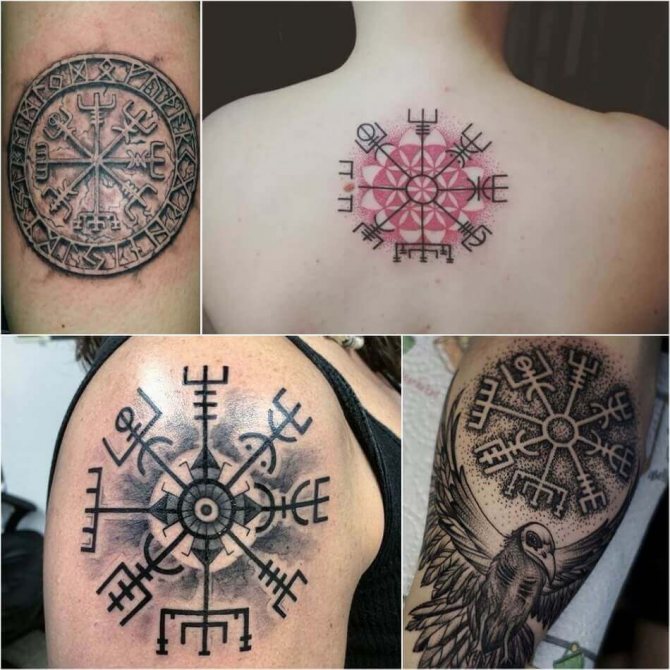

Tattoo Thor's Hammer
Thor in Norse mythology, the son of Odin, the god of thunder and storm, protector of all the gods. Thor's hammer
Mjolnir, so heavy that only Thor can lift it. The blow of the hammer causes thunder and lightning. Copies of the hammer were popular in Scandinavia, people wore them around their necks as amulets. They were also used in sacred ceremonies to sanctify weddings. They were placed under the bed of newlyweds so that they could have many children.
A tattoo can also be made as an amulet to gain the patronage of one of the strongest of the Scandinavian gods. The hammer also symbolizes destruction and creation, as it could be used to both kill and resurrect.
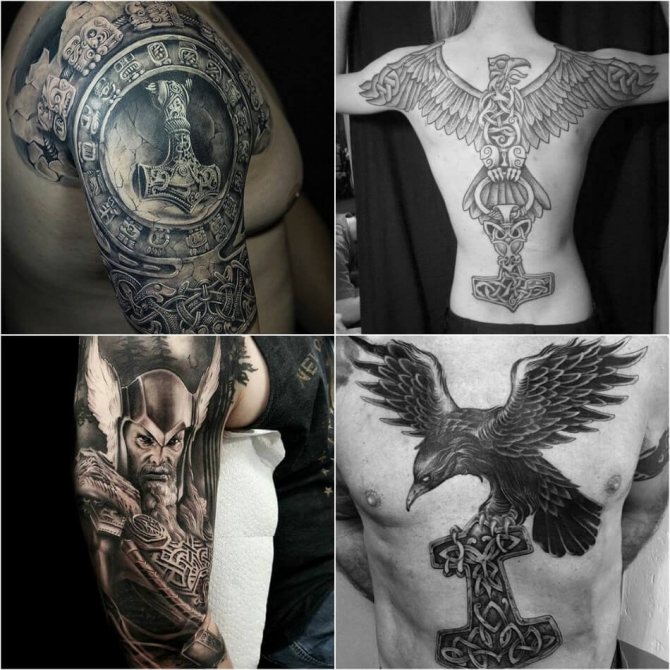

Scandinavian Style Sleeve Tattoo
The sleeve tattoo is most often a combination of runes and ornaments. The faces of the gods, surrounded by the elements and runes, may also be depicted.
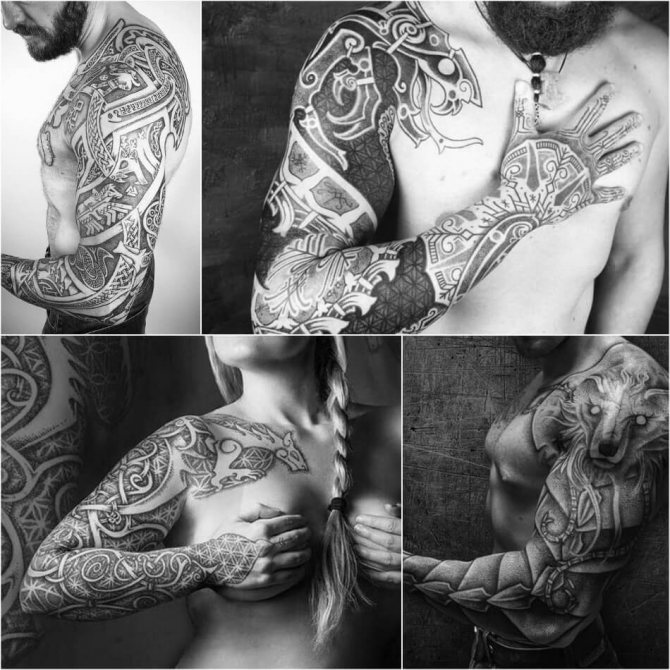

Scandinavian Tattoo on the Forearm
Tattoo on the forearm is a universal solution if you decide to make a drawing of medium size. For example, it can be an image of runes, gods or other Scandinavian subjects.
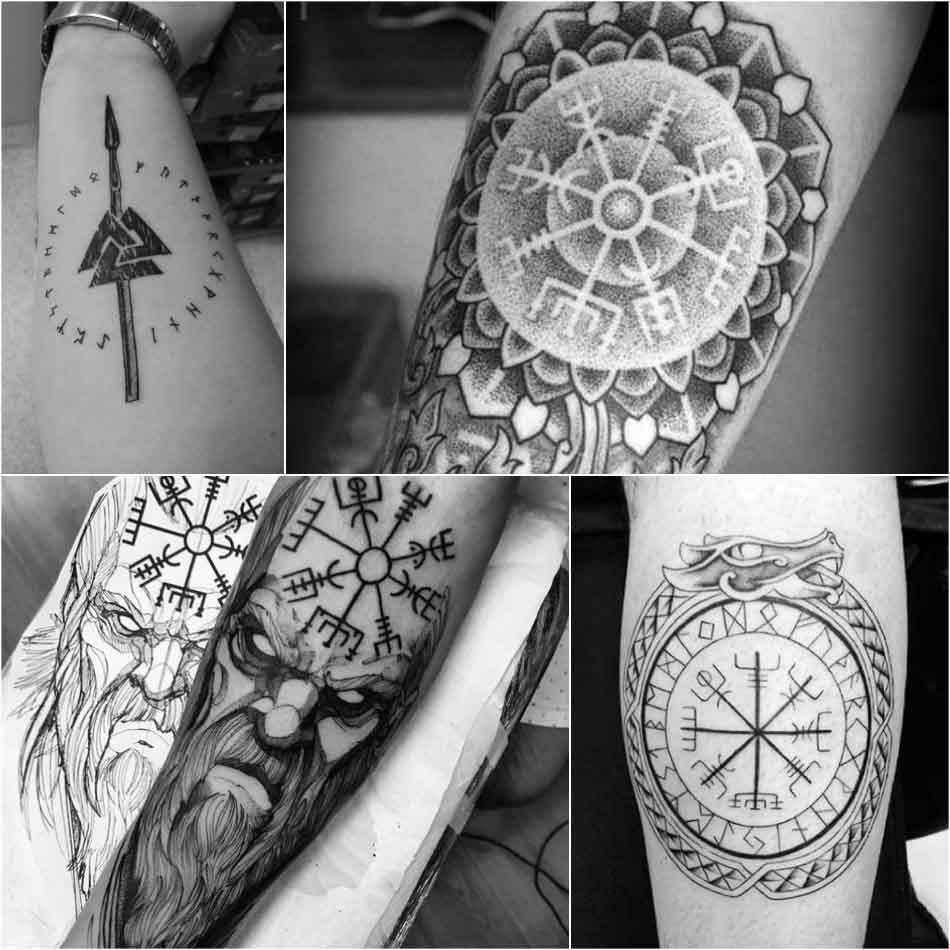

Where to place the tattoo
The Vikings preferred to place images on large areas of the body.
Now most often tattoos are applied to the following areas:


Shoulder. A Scandinavian tattoo of intertwined ornaments, with runes and images of deities from mythology or warriors will look good here. This will be a symbol of courage and will accumulate the strength of the man.- Forearm. Suitable for images of medium size. Most often this place has tattoos with deities, runes and various Scandinavian scenes from legends. Plant motifs look good on the hand.
- Wrist. In this area there is little space to work, so here it is customary to stitch bracelets with runes. May be used symbols from the Scandinavian script.
- Palm, fingers or hands. On these areas are applied personal tattoos, which have deep symbolism. These can be small inscriptions or magical runes.
- Hand. Here, images are applied that cover the area from the shoulder or scapula to the wrist. Most often, such tattoos are an interwoven combination of ornaments and runes. Mythical characters or deities can be seen among them.
- Neck. In most cases, images are applied to the back side, sometimes additionally covering the area on the side and front. Most often, small sketches are used and given the meaning of talismans. These can be patterns, inscriptions or runes. The closer they are placed to the head, the stronger their effect.
- Chest. Various artistic images - animals, deities and characters from myths - will help emphasize the masculinity.
- Side. Here are often placed tattoos with deep philosophical meaning. For example, it may be the tree of life or a ship. The latter will indicate the search for himself and the protection of the family. Sometimes axes or other weapons are applied.
- Thigh. Men rarely choose this place for tattooing. In most cases, images on the thighs are applied by women. They can be ornaments or patterns.
Tattoos from the TV series Vikings
The Vikings series, based on the ancient Scandinavian saga of Ragnar Lothbrok, has made tattoos with Nordic themes popular today. The characters in the series use tattoos for ritual purposes: to help in battle, to achieve the patronage of the gods or to intimidate the enemy. The original Viking tattoos are runes, patterns and ornaments. The older a man gets, the more patterns on his body.
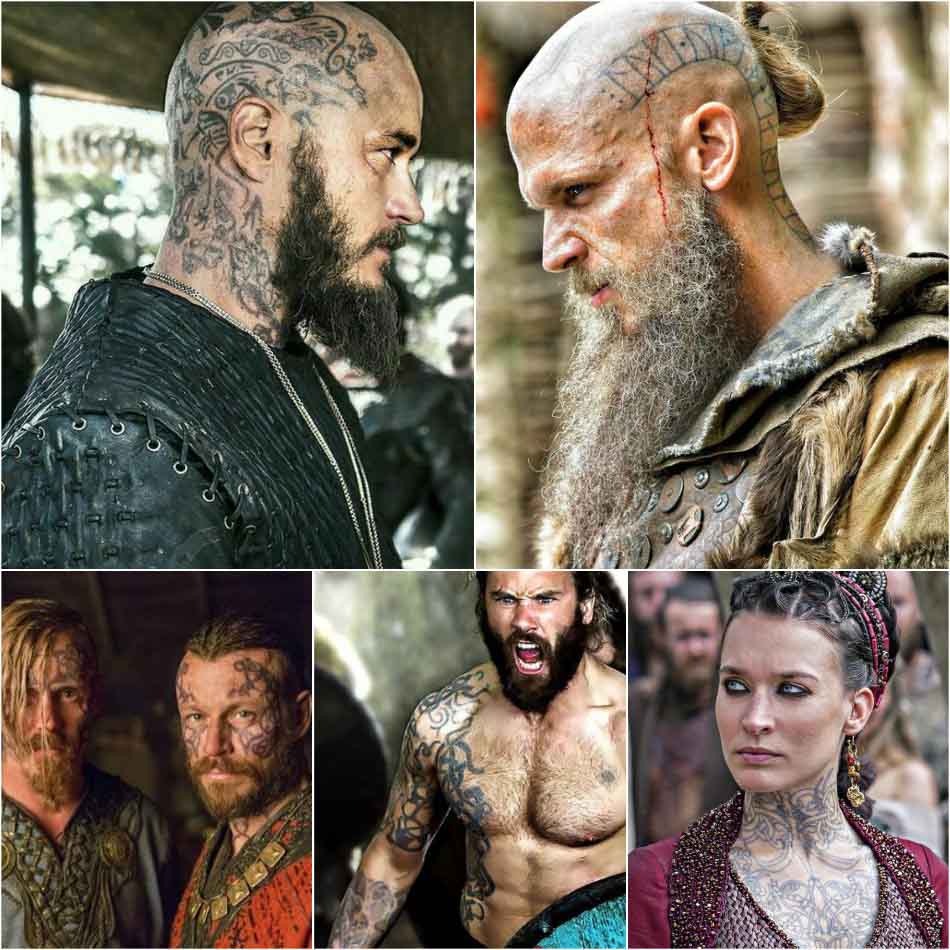

Scandinavian Tattoos for Men
Tattoos of the Scandinavian tradition have become especially active in gaining popularity in recent years. Many men are close to the philosophy of courage, militancy and bravery of the Vikings. Images of brave warriors can be found in TV shows and movies, modern culture often refers to the Nordic mythology. For example, the legendary image of Ragnar Lothbrok from the TV series "Vikings" was loved by the audience and inspired many men to exploits and new tattoos.
A bit of history
It is difficult to find a person who does not have an idea of this people, occupying the territory of modern Scandinavian countries. It was members of this ethnic group who were among the first to decorate their bodies with drawings.
The notes of an Arab traveler who described the drawings on their bodies have survived to this day. It is possible that they were a martial coloring of the Vikings to scare off enemies.
The Scandinavians practiced a pagan religion, with which were associated most of the symbols of body art. Nordic mythology is known for many deities, the names of which are known even now.
Viking are associated with ships, warriors, peculiar appearance. In the symbolism of the Vikings are often found animals in the form of snakes, dragons, which were decorated with ships. It was believed that they would guard against danger.
Female Scandinavian Tattoos
Girls are especially eager to stuff themselves with a variety of runic patterns and amulets. It is worth noting that the Vikings Women have always fought on an equal footing with men. Female warriors bravely went into battle and raids. Modern women are very inspired by this tradition, equality and independence. That is why today to find a tattoo sketch girls often turn to the Scandinavian themes.
You may also find this article interesting: History and varieties of tribal tattoos
Colors
For Scandinavian-themed tattoos, dark shades are the most acceptable. Often there are black and white images. Dilute them with brown shades. Bright colors are used extremely rarely.
